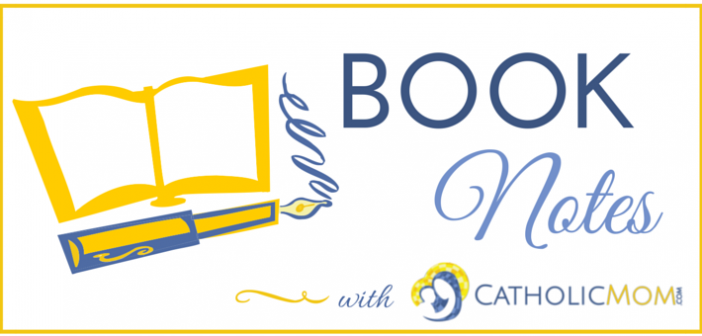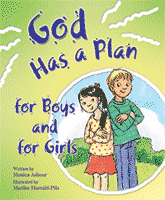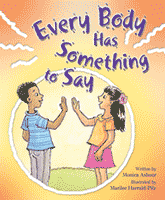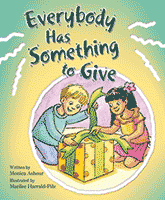 Sooner than I expected, the gender-identity crisis has hit my family. A friend of my high school children recently announced that she occupies the wrong body. She is adopting a male name and look, and asks that everyone embrace the new identity.
Sooner than I expected, the gender-identity crisis has hit my family. A friend of my high school children recently announced that she occupies the wrong body. She is adopting a male name and look, and asks that everyone embrace the new identity.
My children are struggling to respond. I was about to write that my children are agonizing over how to respond (which is true), but whatever confusion they are experiencing is nothing compared to the agony of their friend. A bright, talented young person, their friend has decided--at the age of eighteen--that her body is a mistake. Every conscious moment must be torture for her. Every time she moves, looks at herself, or speaks, she regrets having the "wrong" body.
We are not angels; we have physical bodies, and we simply cannot live without them. Occupying a body we hate must cause pain every second of the day.
One way to alleviate that pain is to give up the fight:
My body is a mistake, and I have the right to fix the problem.
I know better than my body and must re-make it so I can live as I see myself.
Another way to deal with the pain of identity crisis is to accept this miracle:
I am a beloved child of God, a perfect God who makes no mistakes.
I am in agony and need to be healed.
This miraculous alternative, however, does not trend on social media. Somehow our culture finds it more courageous to manipulate reality to cope with a painful world view than to accept reality and ask for help identifying and healing the causes of self-disapproval.
If gender reassignment and sexual confusion have not yet affected your family directly, it's only a matter of time. We parents must share the Good News with our children that they are beloved daughters and sons of God, just exactly as they are. We must equip our children with tender hearts and discerning minds so they can reach out in love to their friends in crisis.
It's never too early.
In a previous Book Notes we looked at a new series of children's board books: Theology of the Body Building Blocks for Tots. These delightful books encourage toddlers to love themselves and their bodies.
Author Monica Ashour has a gift for communicating identity issues in simple, attractive ways. Her toddlers' books are completely fabulous. My advice: if you are a parent, grandparent, teacher, or other adult who might have a chance to read a book to a beloved toddler, run over to the Pauline website and grab these books!
Word got out about my unsubtle enthusiasm for Monica's books, and lo! Pauline Books and Media sent me the next three books in the Theology of the Body family: Building Blocks for Kids.
God Has A Plan For Boys And For Girls

(Explore the book here.)
I love the emphasis on equality: both boys and girls, men and women, can have various jobs and accomplish many tasks. Illustrator Marilee Harrald-Pilz draws a dad wearing a baby in a carrier while he vacuums the carpet, for example, as well as a woman presiding as a judge. Families reading this together will enjoy a book free from stereotypes.
While God Has a Plan for Boys and Girls affirms how similar human persons are in many ways, the book also celebrates our differences. Male and female bodies are different, and we thank God that our special bodies allow us to give and receive love.
Every Body Has Something To Say

(Explore the book here.)
My favorite part about this book is the way it reminds children that we can make choices about what our bodies say to us. When our stomachs growl to say we're hungry, we can choose to pass on a cookie to save our appetite for dinner.
I also love the pictures and explanations about body language. Personally, I am largely oblivious to people's nonverbal cues; I've had to train myself to pay attention to body language. Reading this book when I was young would have been enormously helpful! The book never claims to be useful with autism spectrum issues, but I plan to share it with some friends living with autism to see what they think.
Everybody Has Something To Give
 (Explore the book here.)
(Explore the book here.)
The theme of giving is central to this book. Even very simple gestures we make can be gifts: smiling, taking turns in a game, or helping with a zipper. The Apostleship of Prayer is all about offering small sacrifices for the good of others, so I'm a fan. The book takes an important spiritual step, too, explaining that our generous actions imitate Jesus. Jesus says, "This is my Body, given for you."
Each of these three books repeats its message and images several times throughout, which is an appropriate strategy for the 4-7 age group. Everybody Has Something to Give repeats that everyone loves to open gifts, to rip off the wrapping. It's probably just me, but that started to feel a tiny bit creepy in the context of giving our bodies as gifts. When my son was in his nudist stage, he surely would have read the lines about "opening gifts" as a call to nakedness.
These books, geared toward children aged 4-7, repeat the message that God made our bodies. God created us--in bodies--so we can learn, love, play, work, and interact with others. Amen! As long as we live, we will have bodies. Longing to escape our given bodies leads to lifelong pain, and possibly self-mutilation. Monica Ashour's books for toddlers and children help individuals cultivate respect, love, wonder, and joy at the miracle of creation.
My children's schoolmate is loved. Friends and family who mourn her pain believe, with the best intentions, that they should indulge her at this critical moment. They hope we all accept the new identity and carry on as if it's no problem for a girl to turn into a boy. Biologically, however, this person will always be female; her very DNA insists upon it. The loving response to her pain, then, seems not to be indulging her painful self-disapproval, but slowly uncovering the source of her disintegration.
My daughter agreed that, if one of her friends suffered from an eating disorder, she would energetically find ways to help. The loving response would involve getting help for her friend so she could begin to uncover the reasons she hates the size and look of her body, and to heal her unhealthy relationship with food. Never would we consider buying a mouth guard or helping her find easier, safer ways to vomit after meals.
Uncovering the sources of deep pain is long, hard work. God blesses this work and sustains us in it. Those of us who care for children can join in this work by loving our children and affirming their eternal dignity as beloved sons and daughters of our loving Creator.
Be sure to check out our Book Notes archive.
Copyright 2015 by Grace Mazza Urbanski
About the Author

Guest
We welcome guest contributors who graciously volunteer their writing for our readers. Please support our guest writers by visiting their sites, purchasing their work, and leaving comments to thank them for sharing their gifts here on CatholicMom.com. To inquire about serving as a guest contributor, contact editor@CatholicMom.com.


.png?width=1806&height=731&name=CatholicMom_hcfm_logo1_pos_871c_2728c%20(002).png)
Comments